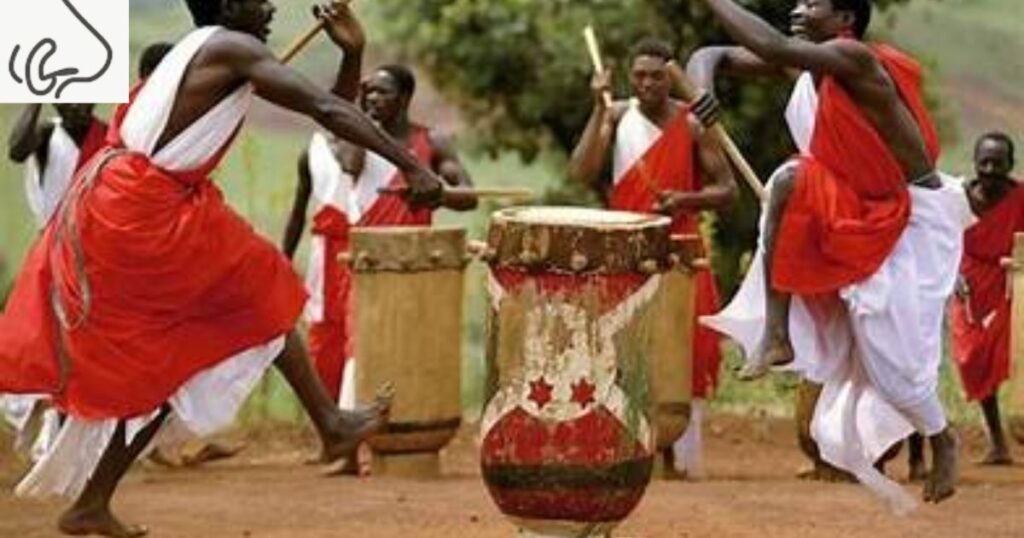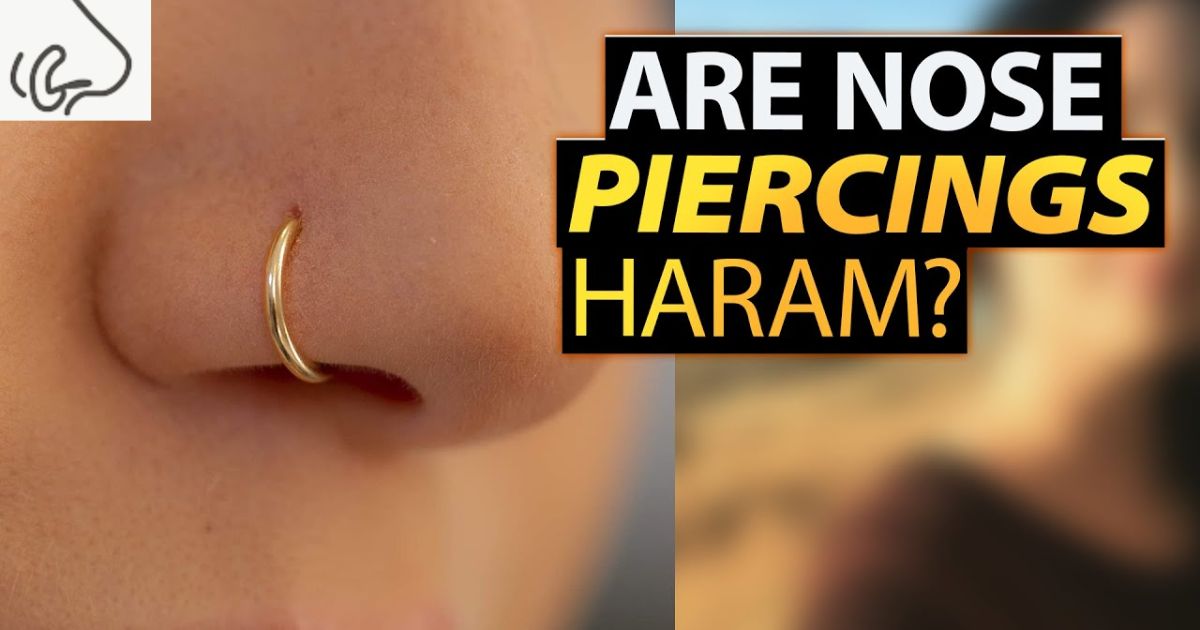Nose piercings have been a popular form of body modification and self-expression for centuries. However, when it comes to religion, particularly Islam, questions arise about whether nose piercings are considered haram (forbidden). In this article, we will delve into the Islamic perspective on nose piercings, exploring the various opinions, cultural practices, and religious considerations that surround this topic.
The practice of body piercing has become increasingly widespread in modern society, with people choosing various forms of piercings as a means of self-expression. Among these, nose piercings are quite common. In the Islamic context, the permissibility of nose piercings has been a subject of debate and discussion.
Significance of Nose Piercings
Before delving into the Islamic perspective, it’s essential to understand the cultural and personal significance of nose piercings in different parts of the world. Nose piercings have varied meanings and interpretations in different cultures and communities.
- Cultural Traditions: Nose piercings are deeply rooted in many cultures, often signifying rites of passage, beauty, or marital status.
- Fashion and Self-Expression: In contemporary society, nose piercings are often chosen as a form of fashion and self-expression.
Islamic Views on Body Modification
In Islam, personal adornment and body modification have specific guidelines that believers are expected to follow. Understanding these guidelines is essential to address the question of whether nose piercings are haram.
General Principles of Adornment
- Moderation: Islam encourages believers to adorn themselves in moderation, avoiding excess and extravagance.
- Concealing Aurah: The concept of “aurah” in Islam refers to areas of the body that must be covered. The extent of aurah varies among different Islamic schools of thought.
The Hanafi School
The Hanafi school of thought is one of the four major Sunni schools of Islamic jurisprudence. Its view on nose piercings can serve as a reference for understanding Islamic opinions on this matter.
- Permissibility: According to the Hanafi school, nose piercings are generally considered permissible as long as they adhere to the principles of modesty and do not involve excessive adornment.
The Shafi’i School
The Shafi’i school is another significant Sunni school of thought, and its perspective on nose piercings offers a different viewpoint.
- Permissibility with Conditions: The Shafi’i school permits nose piercings but emphasizes that they should not be overly ornate or excessive.
The Maliki and Hanbali Schools
The Maliki and Hanbali schools, two other prominent Sunni schools of thought, have varying views on nose piercings.
- Permissibility with Conditions: Like the Shafi’i school, the Maliki and Hanbali schools also permit nose piercings under certain conditions. These conditions typically include moderation and avoidance of extravagance.
Cultural Practices and Regional Variances
Cultural practices often influence the adoption and acceptance of body modifications, including nose piercings, within the Islamic world. It’s crucial to recognize that cultural practices can vary significantly from one region to another.
South Asian and Middle Eastern Traditions
In regions such as South Asia and the Middle East, nose piercings, like whether Tupac had his nose pierced, have a deep cultural and traditional significance. They are often associated with marital status, beauty, and identity.
- Weddings and Celebrations: Nose piercings are commonly a part of wedding ceremonies and other celebratory events.
- Diverse Styles: Different regions have their unique styles of nose piercings, such as the nath in India and the Bedouin style in the Middle East.
North African and Sub-Saharan African Traditions

In North African and Sub-Saharan African cultures, nose piercings also hold cultural significance.
- Ethnic Identity: Nose piercings may reflect an individual’s ethnic identity and are often worn with pride.
- Adornment and Beauty: In some cultures, nose piercings are considered a symbol of beauty and femininity.
Contemporary Practices and Interpretations
In modern times, the practice of nose piercing has evolved, influenced by cultural diversity and personal choice. Some Muslims choose to get nose piercings as a form of self-expression and adornment.
Personal Belief and Interpretation
- Individual Choice: Many Muslims who choose to get nose piercings do so as a matter of personal choice and interpretation of Islamic guidelines.
- Avoiding Extravagance: Those who opt for nose piercings often take care to ensure that their choice aligns with Islamic principles of moderation.
The Importance of Intention
In Islam, intention (niyyah) plays a crucial role in determining the permissibility of actions. The intention behind a nose piercing can significantly affect its acceptability.
Sincere Intentions
- Sincere Worship: Muslims who choose nose piercings with sincere intentions, such as for the sake of modest adornment or cultural significance, are more likely to align with Islamic principles.
- Avoiding Vanity: It’s essential to ensure that the intention behind the nose piercing is not driven by vanity or excessive adornment.
Common Misconceptions and Clarifications
Misunderstandings and misconceptions about the permissibility of nose piercings in Islam are common. Clarifying these points is important for a more accurate understanding.
Misconception: All Nose Piercings Are Haram
- Clarification: Not all nose piercings are considered haram. The permissibility depends on factors such as cultural practices, personal intentions, and adherence to Islamic principles of moderation.
Misconception: All Islamic Schools of Thought Agree
- Clarification: There are variations in the views of different Islamic schools of thought regarding nose piercings. Believers may follow the views of their specific school, but the importance of personal intention is consistent across all schools.
FAQs
Is it haram to have a nose piercing in Islam?
- The permissibility of nose piercings in Islam is subject to various factors, including cultural practices, personal intentions, and adherence to principles of moderation.
Are all Islamic schools of thought unanimous about the permissibility of nose piercings?
- No, there are variations in the views of different Islamic schools of thought regarding nose piercings, but the importance of personal intention is a consistent factor.
What role does personal intention play in determining the permissibility of a nose piercing in Islam?
- Personal intention, or niyyah, plays a crucial role in determining the acceptability of a nose piercing in Islam. Sincere intentions for modest adornment or cultural significance are more likely to align with Islamic principles.
Are all nose piercings considered haram in Islam?
- Not all nose piercings are considered haram in Islam. The permissibility depends on factors such as cultural practices, personal intentions, and adherence to Islamic principles of moderation.
What should Muslims contemplating a nose piercing consider in terms of their intentions and cultural practices?
- Muslims considering a nose piercing should assess their intentions, seek guidance from knowledgeable scholars, ensure alignment with Islamic values of modesty, and respect cultural practices. An open and respectful dialogue is also encouraged.
Conclusion
The permissibility of nose piercings in Islam is a complex and nuanced matter. It involves considerations of personal intention, cultural practices, and adherence to Islamic principles of moderation. Ultimately, whether a nose piercing haram or not depends on one’s individual circumstances and interpretations.
Muslims who are contemplating a nose piercing should carefully assess their intentions, seek guidance from knowledgeable scholars or religious leaders, and take cultural practices into account. It is crucial to ensure that the choice aligns with Islamic values of modesty and avoids extravagance. Additionally, an open and respectful dialogue about this topic can help individuals make informed choices while respecting their cultural heritage and personal beliefs.
The diversity of cultural practices and interpretations within the Islamic world highlights the importance of respecting individual choices and the principle of mutual understanding among believers.
| Section | Content |
| Introduction | Explanation of the topic’s relevance to Islam and self-expression. |
| Significance of Nose Piercings | Cultural and personal significance of nose piercings. |
| Islamic Views on Body Modification | General principles of adornment in Islam and aurah. |
| The Hanafi School | Permissibility of nose piercings with adherence to modesty. |
| The Shafi’i School | Permissibility with emphasis on avoiding ornate piercings. |
| The Maliki and Hanbali Schools | Permissibility with conditions, promoting moderation. |
| Cultural Practices and Regional Variances | The significance of nose piercings in various Islamic regions. |
| South Asian and Middle Eastern Traditions | Nose piercings associated with marital status and beauty. |
| North African and Sub-Saharan African Traditions | Nose piercings reflecting ethnic identity and beauty. |
| Contemporary Practices and Interpretations | Muslims adopting nose piercings as a form of self-expression. |
| Personal Belief and Interpretation | Individual choice and interpretation of Islamic guidelines. |
| The Importance of Intention | The role of sincere intentions in determining acceptability. |
| Common Misconceptions and Clarifications | Clearing misunderstandings regarding nose piercings in Islam. |
| FAQs | Addressing common questions about the permissibility of nose piercings. |
| Conclusion | Recapitulation of the complex and nuanced nature of nose piercings in Islam. |



















